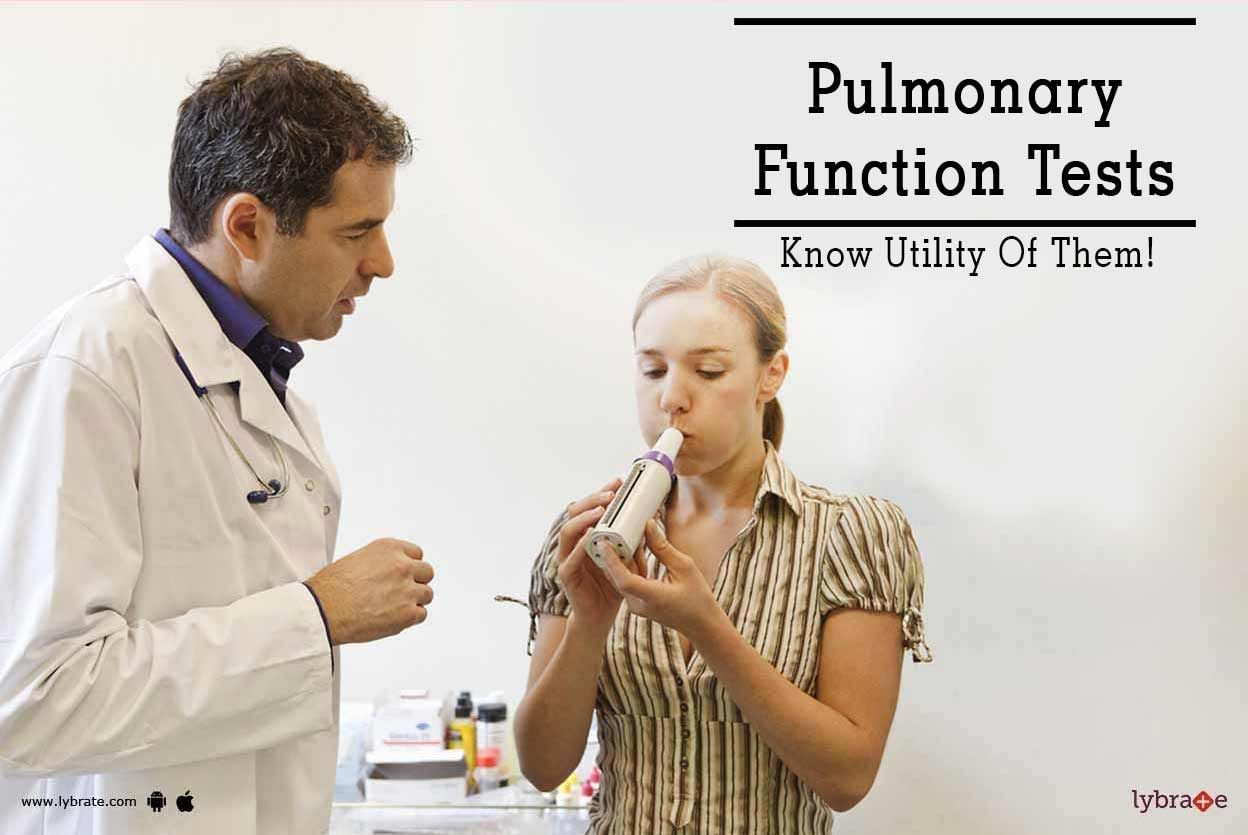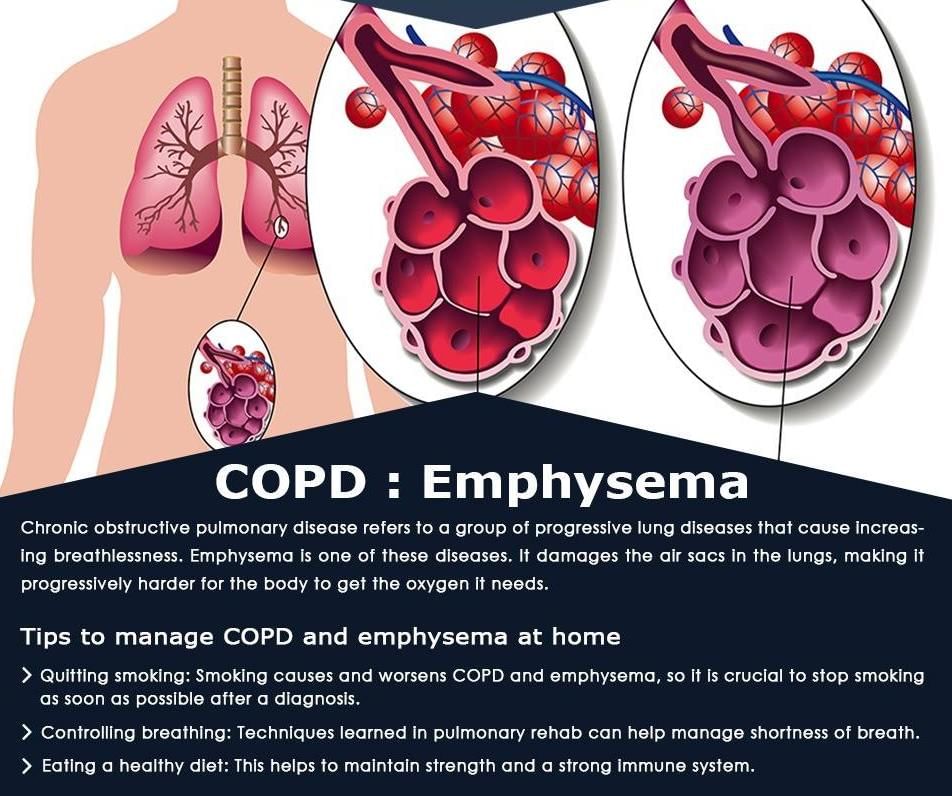Get the App
For Doctors
Login/Sign-up
About
Health Feed
Find Doctors
Health Packages
AllQ&AsTipsQuizzes
Acute Respiratory Distress Syndrome Tips
Last Updated: 6 years ago• Featured Tip
Share
Bookmark
Report
Pulmonary edema is a disorder wherein fluid accumulates in the lungs leading to lack of oxygen in the body. The usual cause of pulmonary edema is congestive heart failure (the muscles of the heart are unable to pump blood). In this disorder, the heart has to work extra hard to pump blood, so this adds extra pressure on the blood vessels that are present in the lungs. In a bid to relieve this added pressure, fluid is released into the lungs by the blood vessels.
The function of your lung...more
The function of your lung...more
Last Updated: 6 years ago• Featured Tip
Share
Bookmark
Report
If you are facing difficulties in breathing, especially in the process of exhaling, you are suffering from emphysema. Emphysema is a condition in which the air sacs of the lungs are damaged and enlarged, causing breathlessness. It occurs as a result of several triggers, smoking being the most common one. Emphysema is a type of chronic obstructive pulmonary disease. People with this condition struggle to exhale, which implies that there is some obstruction in the air flow. This disease has no per...more
Last Updated: 6 years ago• Featured Tip
Share
Bookmark
Report
MBBS, DNB - Pulmonary Medicine, Allergy ...read more
Pulmonologist•Navi Mumbai
Pulmonary Function Tests or PFTs are a set of tests that are used to determine, measure or observe the functioning of the lungs. The most common pulmonary function tests used are spirometry, gas diffusion, and lung plethysmography.
Highlights of pulmonary function tests
A spirometry test is used to measure the amount of air inhaled and exhaled. It also measures the amount of time taken to complete a respiration cycle.
Lung plethysmography measures the amount of air in the l...more
Highlights of pulmonary function tests
A spirometry test is used to measure the amount of air inhaled and exhaled. It also measures the amount of time taken to complete a respiration cycle.
Lung plethysmography measures the amount of air in the l...more
Last Updated: 6 years ago• Featured Tip
Share
Bookmark
Report
When a blood clot blocks one or more arteries in your lungs the condition is known as pulmonary embolism. It can cause a decrease in the oxygen levels in your blood, damage to your lungs due to sudden restrictions in the flow of blood along with adverse effects on other parts of your body. Life-threatening blockage can cause death if left untreated and you should immediately contact your health care provider to get a proper diagnosis. Pulmonary embolism requires various lab tests and generally r...more
Last Updated: 6 years ago• Featured Tip
Share
Bookmark
Report
Recent years have witnessed the severity of acute respiratory infections. The main cause is exposure to more of respiratory Infection causing microorganisms. Everyone is at a high risk of exposure. The infections can affect all age groups equally. Therefore, you must know all about acute respiratory infections.
Acute respiratory infections may interfere in normal breathing. The infection often starts as a viral infection in the nose, trachea (windpipe) or in the lungs. In cases of non t...more
Acute respiratory infections may interfere in normal breathing. The infection often starts as a viral infection in the nose, trachea (windpipe) or in the lungs. In cases of non t...more
Last Updated: 6 years ago• Featured Tip
Share
Bookmark
Report
A peripheral arterial aneurysm occurs when there is a weakened or enlarged portion in your artery. It usually manifests in the legs or the neck. Though an aneurysm usually happens in the aorta (the largest blood vessel in the body) it can occur in any blood vessel.
What Are the Types of Peripheral Arterial Aneurysm?
When it comes to the artery of the abdomen, an aneurysm can be of three types- splenic, hepatic or celiac. A peripheral aneurysm can also develop in-
Ren...more
What Are the Types of Peripheral Arterial Aneurysm?
When it comes to the artery of the abdomen, an aneurysm can be of three types- splenic, hepatic or celiac. A peripheral aneurysm can also develop in-
Ren...more
Last Updated: 6 years ago• Featured Tip
Share
Bookmark
Report
Last Updated: 6 years ago• Featured Tip
Share
Bookmark
Report
Complications in the heart valve occur when the functioning of the heart valve is impaired. Valves of the heart allow the blood in one direction and prevent the blood from flowing back into the ventricles of the heart.
Heart valve diseases can be classified as follows:
1. Valvular stenosis:
This condition occurs when the valves of the heart do not open completely due to stiffness. As the opening is narrow, the heart has to work hard to pump blood. This condition may lead to...more
Heart valve diseases can be classified as follows:
1. Valvular stenosis:
This condition occurs when the valves of the heart do not open completely due to stiffness. As the opening is narrow, the heart has to work hard to pump blood. This condition may lead to...more
Last Updated: 6 years ago• Featured Tip
Share
Bookmark
Report
During breathing activity, chest wall moves out & in, lungs expand & relax. For the smooth movement of the lungs inside the chest cavity, they are lined by pleura.
Pleura includes two thin linings, the layer lining lungs is called visceral pleura and the one lining chest wall is called parietal pleura. The cavity formed between these two layers is called Pleural cavity. It contains a small amount of lubricant called Pleural fluid which helps smooth sliding of two pleural surfaces. Any c...more
Pleura includes two thin linings, the layer lining lungs is called visceral pleura and the one lining chest wall is called parietal pleura. The cavity formed between these two layers is called Pleural cavity. It contains a small amount of lubricant called Pleural fluid which helps smooth sliding of two pleural surfaces. Any c...more
Last Updated: 6 years ago• Featured Tip
Share
Bookmark
Report
When blood clot blocks one or more arteries in your lungs the condition is known as pulmonary embolism. It can cause a decrease in the oxygen levels in your blood, damage to your lungs due to sudden restrictions in the flow of blood along with adverse effects on other parts of your body. Life threatening blockage can cause death if left untreated and you should immediately contact your health care provider to get proper diagnosis. Pulmonary embolism requires various lab tests and generally requi...more
Book appointment with top doctors for Acute Respiratory Distress Syndrome treatment
View fees, clinic timings and reviews
Ask a free question
Get FREE multiple opinions from Doctors
posted anonymously





















